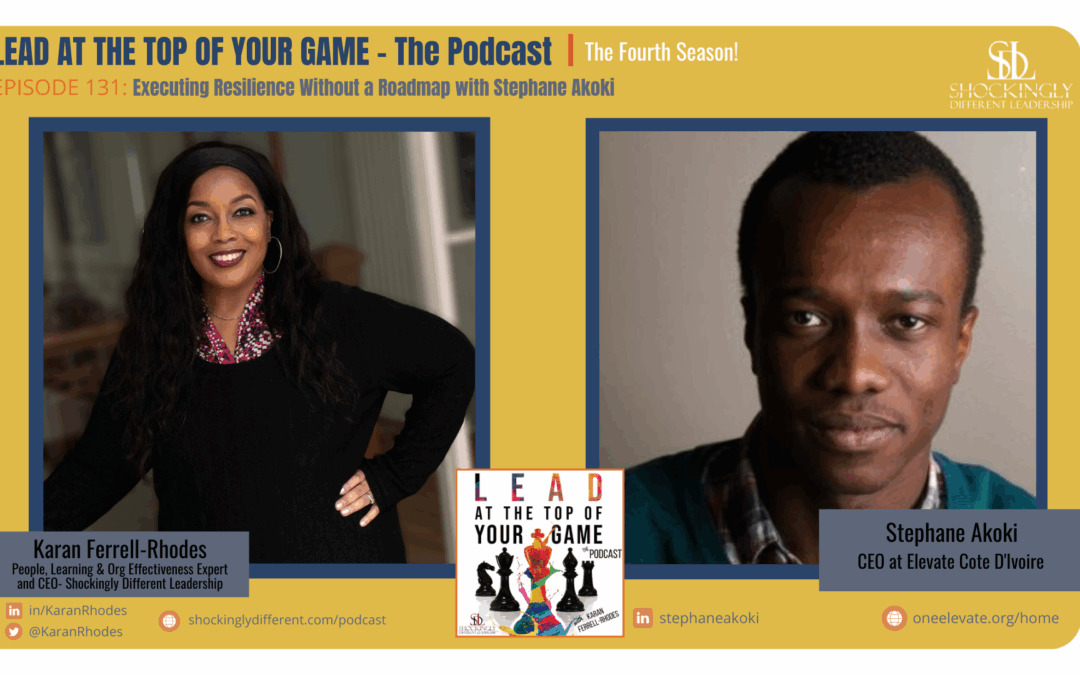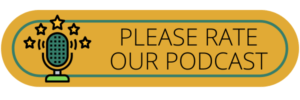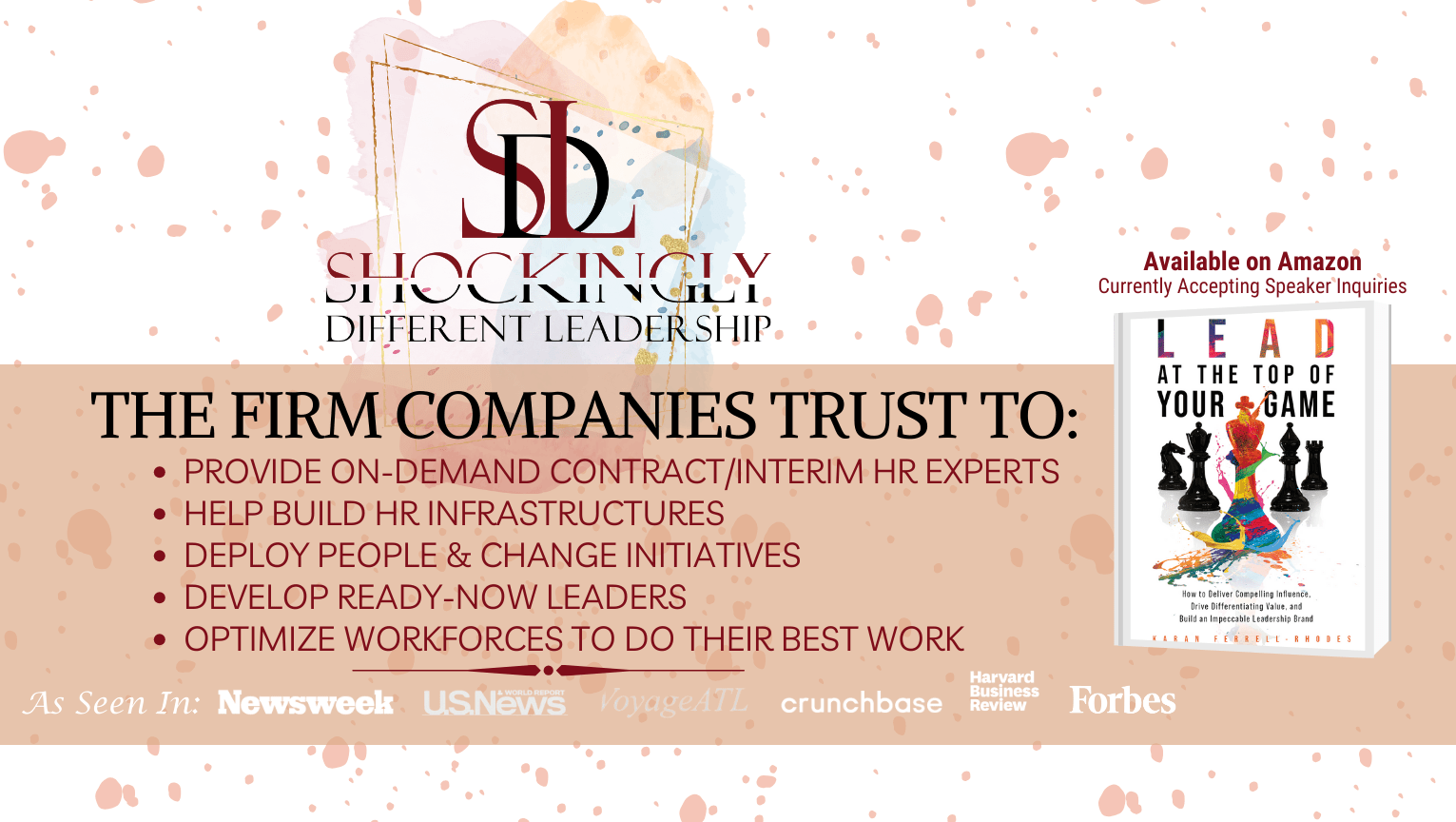IN THIS EPISODE, KARAN FERRELL-RHODES INTERVIEWS STEPHANE AKOKI
Stephane talks about how he overcame significant challenges in Côte d’Ivoire, including civil wars and economic instability, by pursuing education abroad and eventually founding Elevate Côte d’Ivoire.
Stephane Akoki, is the CEO of Elevate Côte d’Ivoire, a non-profit that operates across six African countries, providing educational and job opportunities that help professionals dramatically increase their income through virtual assistant and remote work placements.
Elevate Côte d’Ivoire utilizes a unique, sustainable model where less than 1% of revenue comes from donations, instead generating funds through job placement services. By helping individuals achieve financial stability, Elevate enables professionals to move beyond survival and create opportunities for themselves and their families.
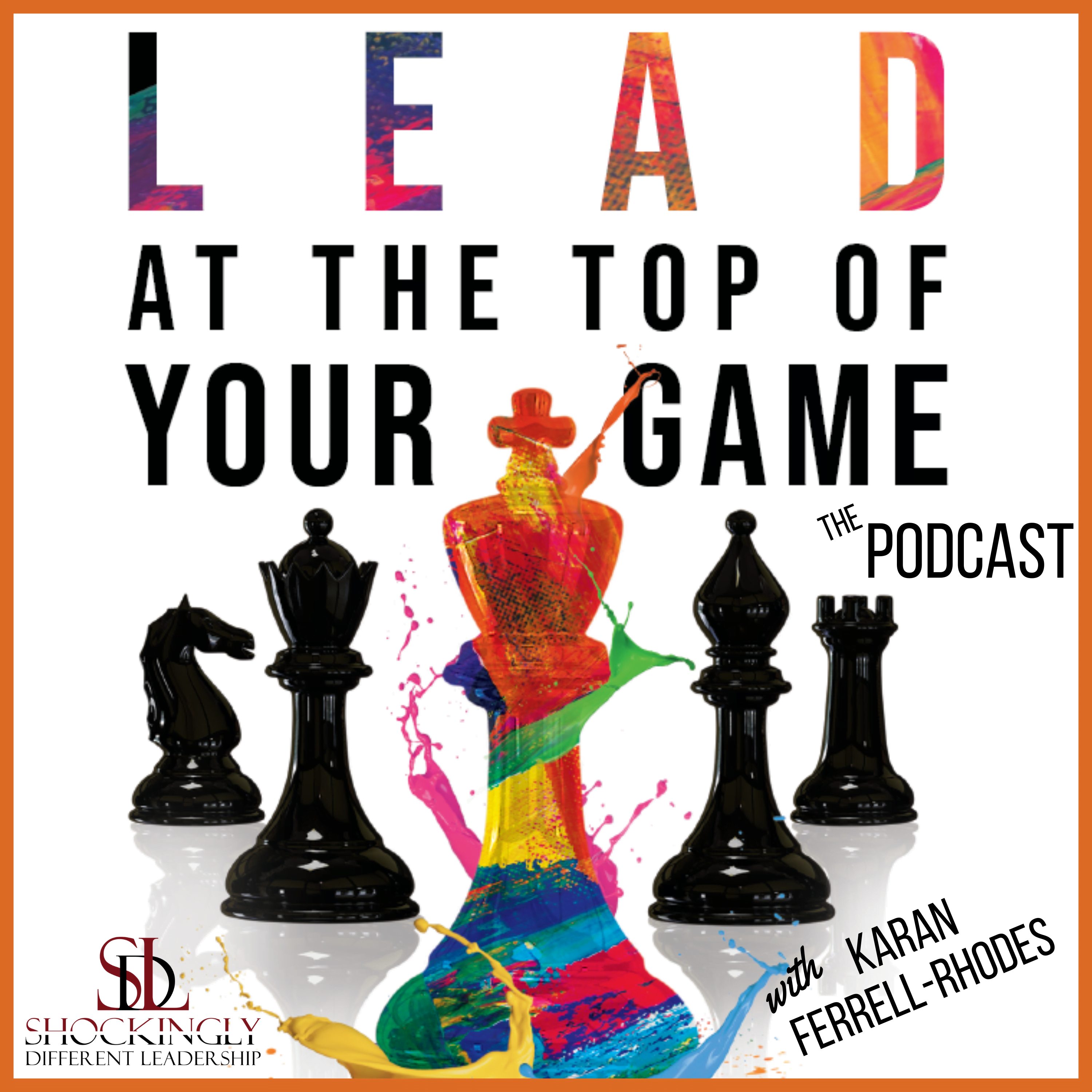
Posted by
SDL Media Team
Rather view our video podcast?

WHAT TO LISTEN FOR:
- Stephane’s incredible journey from Cote d’Ivoire through being scammed in China to success in the US
- The cultural diversity of Côte d’Ivoire and the challenges of growing up during civil wars
- How personal struggles inspired the creation of the nonprofit Elevate Côte d’Ivoire
- The innovative, sustainable nonprofit model that generates revenue through job placements
- Success stories of individuals like Ruth from Nigeria who transformed their economic situation
- Stephane’s approach to entrepreneurship and solving problems creatively
- The organization’s expansion across six African countries and plans to build a university
- Insights into overcoming obstacles and creating opportunities in developing economies
“Giving isn’t about how much you have. It is about the content of your heart.”
FEATURED TIMESTAMPS:
[2:11] Stephane’s personal life and travel
[5:00] Stephan’s background in Côte d’Ivoire
[6:25] Challenges with education due to civil wars and financial struggles
[8:23] Stephen’s trip to China after being scammed by an agency
[18:40] Founding of Elevate Côte d’Ivoire
[19:18] Signature Segment: Stephane’s entry into the LATTOYG Playbook: Generosity…Saving a portion for the stranger who might need it.
[22:24] Success story of Ruth from Nigeria
[29:24] Signature Segment: Stephane’s LATTOYG Tactic of Choice: Leading with Intrapreneurship
[31:18] How Côte d’Ivoire developed a sustainable nonprofit model

ABOUT STEPHANE AKOKI
Stéphane Akoki is a writer, social entrepreneur, and speaker originally from Côte d’Ivoire. His life journey, from poverty and betrayal to international education and divine provision, serves as a powerful testament to God’s grace. After being scammed and left stranded in China, Stéphane chose faith over fear. He learned Mandarin, rebuilt his life, and followed a spiritual path that led him to the United States. He later earned his degree from Brigham Young University’s Marriott School of Business, becoming the first Ivorian to attend the institution.
Stéphane is the founder of Elevate Côte d’Ivoire, a nonprofit dedicated to lifting others out of poverty through education and job opportunities. A fluent speaker of four languages and a passionate disciple of Christ, he lives to help others discover their divine potential. Stéphane is a living witness of God’s grace and the miracles He accomplishes in those who trust in Him and persevere against all odds
LINKS FOR STEPHANE:
- Website: https://oneelevate.org/home
- LinkedIn:https://www.linkedin.com/in/stephaneakoki
ADDITIONAL RESOURCES FOR YOU:


Episode Sponsor
SDL is the go-to firm companies trust when needing to:
- supplement their in-house HR teams with contract or interim HR experts
- implement leadership development programs that demonstrate an immediate ROI and impact on the business

Episode 131 | Executing Resilience Without a Roadmap with Stephane Akoki
Stephane Akoki 00:00
When in Rome, do as the Romans. People open up, and is so much more cheerful and willing to accept you when you try to learn the language when you try. That was a survival tip for me, like I I realized, you know, in the classroom alone was not enough.
Voiceover 00:03
Welcome to the “Lead at the Top of Your Game” podcast, where we equip you to more effectively lead your seat at any employer, business, or industry in which you choose to play. Each week, we help you sharpen your leadership acumen by cracking open the playbooks of dynamic leaders who are doing big things in their professional endeavors. And now, your host, leadership tactics, and organizational development expert, Karan Ferrell-Rhodes.
Karan Rhodes 00:36
Hello, my superstars. This is Karan, and welcome to another episode of the lead at the top of your game podcast, I am so honored and pleased to have on today’s show, Stephane, and I’m gonna get his name right. I promised I would a cokey. So Stefan a cookie, and Stefan is the CEO of Elevate Cote d’Ivoire. Is that right?
Stephane Akoki 00:59
That’s right,
Karan Rhodes 01:00
Okay. And Cote d’Ivoire is a non profit dedicated to lifting others out of poverty through education and job opportunities. Now, while Stephane is doing great work on his own, it was actually his story that really captured my attention and compelled me to really want to get him on the show. He’s going to talk more about it during our episode, but just to give you a teaser, he cheers being scammed and left stranded in China. And I’ve been to China before many times, so that I have to hear more about all the way to finding a way to the US and overcoming obstacles to ultimately lead a very impactful nonprofit organization that is really giving back and making an impact on the community. So officially, welcome to the podcast.
Stephane Akoki 01:51
Stefan, thank you. Thank you so much for having me.
Karan Rhodes 01:54
Oh, so honored to have you well before we delve into like I said to your fascinating story, we always love to learn just a tad bit more about our guests. So for just as much as you feel comfortable, would you give us a sneak peek into your life outside of work?
Stephane Akoki 02:11
Yeah, somehow I like to tell my friends I sometimes feel like I don’t have much of the life, but when I’m not working, I love to travel. I was in Japan a few months ago, and it was incredible, great to be back to Asia and then get to know a new culture and a new language. So that’s awesome. And I love to walk. I like to go and walk. It’s my time for me to think and process things and enjoy nature. So I do quite a bit of walking. So pitching traveling and walking, that’s where you’ll find Stefan, that sort of work.
Karan Rhodes 02:43
Oh, so we have so much in common, Stefan, because first I love to travel to internationally. You probably beat me, but I’ve been to over 30 countries, and still have ton more to visit, but you
Stephane Akoki 02:55
totally beat me. Yeah. And I would love to hear China and what you were doing there now, but
Karan Rhodes 03:04
yeah, well before my listeners know, before I started my own firm, I spent over 14 years at Microsoft and global roles, and so part of that was visiting a ton of countries. So I got a chance to do it then, but then I kept that love for it going on my own. And Tokyo and it’s Beijing are two of my favorite cities, so we’ve definitely gotta, gotta talk and catch up after the podcast. That’s awesome. Well, thank you for giving us that sneak peek, and I would love to learn more about Cote d’Ivoire, but if you can, if you don’t mind, can you start out with your your personal story, and then kind of end up with what led you to being the CEO of Cote d’Ivoire, and what you all do there?
Stephane Akoki 04:04
Yeah, of course, yeah. So like you mentioned, I was born, born and raised in Cote d’Ivoire. Cote d’Ivoire is in West Africa. It is a former French colony, so we’ve inherited a French language as our main language, and it’s a very culturally diverse country, 60 different tribes, close to 80 different languages. Think about it as the size of New Mexico, and you have like, 60 different languages. Oh, man, yeah. So very fascinating country. I like to tell people, like, how I grew up around so much diversity. My platinum, and you go to school and you have 10, 1215, tribes, and everyone’s speaking their own language and all. And it’s quite it’s quite incredible. And the food diversity is also incredible. You know, like, I like to say funny, like, what my mom has made because of she’s cooked things from her tribe. I just go to the neighbor of the different tribe, and I think what I like over there, so it’s. A very, very great country and community and all that. But unfortunately, we’ve had some really rough times. So starting in 1999 we had our first coup and coup d’etat, and I remember seeing it in the news. And I was young. Then I was about 10 years old, and asking my dad, like, what does that even mean? Coup D’Etat was the first time I heard of that. But then I led to, like, multiple civil wars. So I would say most of my lifetime in Ivory Coast was the country was at war for different, different reasons, internal conflicts. And all create a lot of challenges. You know, you have the challenge of poverty and access to quality education, and then ultimately, in close to 2020 11. We we’ve had what we call the grand finale. That’s when the war ended. That cost, unfortunately, life of 1000s of people. And for me, the way impacted me and my family is my my university was in the midst of a conflict, so it got shut down because it was quite severely damaged. So that was my story. My journey started. You know, I’m 21 year old, 21 year old, and my university is not there anymore, and no opportunity to go to school. And the economy is a struggle quite a bit. So no no money. So you have major challenges that we face now between civil war, like I mentioned financial struggle. Can couldn’t afford to go to private college. I remember the tuition was, we’re missing like, something like three to $400 to be for me to get to school. I was going to, I wanted to go to computer, computer school, but we couldn’t afford that by the time we gather money between, like, relatives and friends to the admission as close already. So missed, missed a year, missed another one, and so lots, lots of difficulty that way. And you know, we’ve tried scholarship options, but then you have corruption, where you know scholarships are only given to people with connection to government or people with money. So it’s a it’s a counterintuitive you think, you know, scholarships, opportunities should be available to those who cannot afford education. Exactly. You would think I had the grade, but it was like, Oh, you need to pay $200 for a scholarship. It’s like, wait, but if I do pay for that, how do I pay for this, for the registration? So it was a chicken and egg problem, where I got the scholarship, I never could make it to the school because I couldn’t afford both. So then that’s what led to China. You know, parents were like, You know what looks like, there’s nothing here for you. And we’ve tried a lot of different things, you know, I tried some businesses over there, but, you know, the environment for entrepreneurship is very, very, very difficult. Not a lot of opportunities, a lot of funding opportunities, and then again, lots of scams and corruption. And so parents were like, you know, you need to explore going abroad options. And that’s where China came into the picture. There was this agency that my friend told me about that could help students go to China. And my first reaction was, China. Like, who goes to China? Everybody goes to France, Europe, all these countries were very more familiar with and language that are similar to ours, but I decided to give it a shot. And my my family was wearing sacrifice everything they had. We took two bank loans because we didn’t have the means. And then then I eventually ended up in China that then I get the second half of the story was, you I get to China in Tianjin, you know, right south of Beijing, and then no one shows up at the airport. That’s kind of how the story starts. And I’m like, Okay, what do I do? I don’t speak this language. I don’t know even anything about the city, and now it’s just trying to talk to people and asking questions, and no one speaks English, and it was really hard. Eventually, you know, I found a taxi, you know, with some sign language and all, we got to the university, and I was like, okay, good, the university, at least exists. Then the next day, I go to the admission and they say, we didn’t know you were coming. I’m here for this degree. And they’re like, oh, no, we don’t have that. It was supposed to be a computer science English degree. I said, No, we you never sign up for that, and we only sign up for Chinese classes. So I was like, wait, I think that’s a misunderstanding. And then, you know, later we find out that the agency, the middleman, really took all the money for housing and tuition, and just sign my sign me up in some random Mandarin class. And so, yeah, that was the start of the story. And then from there, really had to it was a very, very difficult time, obviously, like trying to find food and housing and and about work, work my way, until I find opportunities to get a scholarship. And now I’m here in the US, and graduated my information system degree. So took, took a long time through all those challenges, but, you know, was privileged enough to get an opportunity to come here and, like I said, live the American dream.
Karan Rhodes 09:52
Oh, I know that was, you know, a 30 second almost rundown, but I would live in that probably. Had to be. I don’t know if there’s a right adjective for it, like overwhelming, nerve wracking, but I one of the things I want to let some listeners know, just, just, just for their own edification, in China, for the most part, because it is a communist country. They are not used to people of color being there. And in my visits there that we were, they thought we were like famous I still remember I went over there for business for a couple of weeks, and then I brought my family over for 10 days to let them experience it, and they we were followed everywhere. Um, people asked to take pictures because I hadn’t seen people of color before, I guess, other than maybe the Olympics. But um, every day, individuals didn’t um, and so people were extremely fascinated with us. And most, to your point, most did not speak English. The only ones that generally did were those that worked in hotels and some of the youth, the really young youth, I guess they were learning some English in school. But the key to surviving there, believe it or not, you can get a lot done with just gestures, doing people say, you have to know the language, not necessarily gestures like you said, Sign Language, trying to get people to understand. We did that because we traveled outside of the the main touristy areas, but the one thing you always had to keep on you was a card of a taxi driver who spoke English, and the card of your hotel. So no matter where you went, you could show it to somebody. They would, you know, get you to where you needed to be. So
Stephane Akoki 11:58
I wish I got that tip before I went there. I got lost too many times.
Karan Rhodes 12:02
We got lost a few times, but we, I had those cards, and so we were always able to get back to ground zero. But wow, that’s amazing. Well, you survived to tell the story, which is
Stephane Akoki 12:15
Yeah, no, seriously…I was saying, Sorry,
Karan Rhodes 12:19
No, go ahead,
Stephane Akoki 12:20
As you were saying, talking about, you know, being a person of color. One funny story that came out to me was, you know, I I got there, and I remember the roommates in the in the university where, you know, from Canada and and other other places around the world. And I finally, you know, meet, like, say, a brother from Kenya. And I was like, Hey, have a question, man. Is like, like, why are they staring at me like that? I know, I generally didn’t know. And then he was like, Come closer, come closer. Let me tell you a secret. And he was like, wow, that’s right, coming from, you know, came from Africa, obviously, mostly people around I’m used to my majority. I’ve never really been in an environment where I was in minority. So it was quite a funny, funny realization. I’m like, yeah, he’s right. I am. I look different.
Karan Rhodes 13:16
It is, and it was. But you know what I will say, that I was I never felt like they were looking down on me or didn’t like me or my family. I mean, obviously they knew we were, you know, guests. We were business technically under business visas, but they wanted to take pictures and laugh and and it’s all we all. It always reminds me that we have more in common than we have different. That’s right, um, you know, and I learned a few words of Mandarin, but just enough to get by in an emergency like bathroom, restroom with food, restaurant, place, but, but that was one of the best experiences that, you know, I’ve had, but I had the the umbrella of being there under a, you know, global company, too, on business. So that gave a lot of context to people while you you know, were trying to go to school and, you know, get out of a very difficult situation. So by no means do I compare our experience to yours.
Stephane Akoki 14:29
Yeah, I was definitely want to emphasize, you know, learning the language that’s that’s my tip to, you know, having living in so many countries, it’s like when in Rome there was a Romans,
Karan Rhodes 14:38
That’s right.
Stephane Akoki 14:39
like I people open up, and is so much more cheerful and willing to accept you when you try to learn the language when you try. That was a survival tip for me, like I I realized, you know, in the classroom alone was not enough. Yeah, it was just not enough. You I had to get out there, you know. And then, you know, it’s a more reserved culture as. You may have observed people don’t talk to strangers. So I was definitely first. I was it was strange to people that I would approach them, and I was like, tell me, tell me more about your story. And my favorite thing was actually talking to older people. Yeah, some of them were alive, you know, during the early days of communism, and they, you know, they’ll tell you things like, you know, I cannot believe that foreigners now come to China, because that was not a thing many, many, many years ago in the stories where most of it I did not understand, but it was a good practice. And, you know, and as you know, as it helped me evolve my language skills a ton. And one of my favorite thing to do in the US is go to Chinatown and just switch to Mandarin, and then everybody screams like,
Karan Rhodes 15:44
Oh, of course, yes,
Stephane Akoki 15:48
How do you speak our language. This is crazy. I am one of you. I’m from China, and they look confused because I have the northern accent, the Beijing accent, the Deep Throat.
Karan Rhodes 16:02
Yes
Stephane Akoki 16:02
Wait, he doesn’t look like me, but he sounds a little bit like me. I’m confused. And this is one of my favorite thing about, you know, living in national and becoming global citizen.
Karan Rhodes 16:12
Oh, absolutely. And I consider myself a citizen of the world as well. I say I’m based in Atlanta, live in Hartsfield, Jackson airport, but am a citizen of the world, and I love that, because you’re right. And I won’t say I wouldn’t, I didn’t get perfect Amanda, like I said. I got a few phrases and a few words here and there, but they appreciate you trying. That’s right. And and also, if you brush up on, like, basic etiquette, etiquette, you’ll know, like you said, they have a very conservative culture. They they really believe in say something. It’s hierarchical. It is. But they also, you always want to say, face, you never denigrate anyone, but just appreciating and following the customs that they’ve been brought up in respecting those really goes a long way. And if they say you’re trying to respect their they open up to what you, you know, said, and they’re so loving and helpful, you know, I found once you’re able to make those, you know, initial connections,
Stephane Akoki 17:23
Yeah, yeah, I agree. I agree. And it’s, it’s, I love to, you know, another tip is, like you mentioned, like being adaptable, being willing to to, to absorb the culture into you, yeah, what is always interesting my kids is, you know, that change country, like I come to the US. I’m trying to bow to people, and they’re like, Oh no, no, different country,
Karan Rhodes 17:44
Yeah,
Stephane Akoki 17:45
Really, you gonna try to hug me, and I was like, Oh hey, no. Oh no, mobile hug. And it takes, always, a few weeks to get adjusted to a new way of doing things.
Karan Rhodes 17:54
Oh, absolutely.
Stephane Akoki 17:57
That’s incredible. There’s so much there’s so much beauty and diversity, and I’m so grateful for those experiences. Looking back like your point was really, really, really hard, but it has definitely shaped me on a much better person and having those global perspective.
Karan Rhodes 18:09
Yeah, me too. Me too. Well, I don’t I know we’ve been chatting, this has been great, but I want to share with the listeners the fantastic work you’re doing with your nonprofit, and I know I didn’t give it justice. So can you please share more about the nonprofit and the impact you’re trying to make in the communities?
Stephane Akoki 18:27
Yeah, yeah, of course. So elevate Cote d’Ivoire, like you mentioned, you know, is here to empower individual in Africa. We’re now in six countries, you know, Cote d’Ivoire, because that’s where I’m from, that’s where my heart is. But we’re providing educational opportunities, job opportunities across the African continent, and it’s really, really incredible. So, you know, again, tying back to my story, it was such a difficult experience for me. You know, take, took about a 10 years to 10 year journey for me to get access to good education and affordable education. And I kept thinking, you know, it shouldn’t be this hard, and all I wanted, really is a better life. You know, it didn’t have to be abroad. I, in fact, my preference was to stay home and get an education and get the job so I can live, you know, a decent life. So when I, when I moved here, you know, I remember meeting my college president, and he asked me, What are you hoping to accomplish with your time in the college? And I said, I need, and that was 10 years ago, like, I need to learn all that I can from the United States and its educational system, and I need to be able to take it back to my country. You know, there were, I was like, but then again, I was like, well, I need to do something now. You know, folks were like, well, I mean, you’re doing a non profit, but you’re broke. You should you charity right now others, but I remember something my mom always taught us as kids. You know, food was scarce, opportunities were scarce for us. But she always, you know, when she cooks, you know we will usually have, you know, the meal will be, will you’ll be served your meals. So like, Hey, here’s your portion. Everyone has their portion. It was quite a shift when I moved here. And I was like, buffet style, like, what? Yeah, so, but you always save a portion on the side. And I was like, Well, mom, like, we barely have enough. Like, why can’t we eat that portion? And she was like, this is for the stranger that might be hungry. Yeah, this is for the person that might need it, that may come tonight. We don’t know. And I’m always like, as a kid, I never like, Nah, we’re hungry. And she’s always taught us to think about others, put others first, even when we have the least. And that taught us to taught me the principle of, you know, giving some about how much you have. You know, it’s about the content of your heart. And if you care about others, you don’t need to have a tongue to start. And so for me, I started, actually, with taking my Business School Notes. I will call my friends on, you know, I think it was Skype them. And there were local entrepreneurs trying to figure out and make a living and make a good life. And I’ll say, hey, look, this is what the Americans are saying. They’re saying, you know, they’re pretty good at business, you know, well, in this country, so they’re saying you should do this. You should do that. This is how you should track your revenues. You know, you should start having KPIs and all those principles that I didn’t know that was so exciting to learn. Yeah, I just started taking those notes and just teaching over, over Skype. And that’s how elevate started, um, providing education to entrepreneur local small businesses. And we’re able to 2x 3x their growth and businesses. And I was like, I gotta keep doing this, but it needs to be at scale. So I needed a curriculum. I needed to be a good team. And from there, with my college years, I, you know, I recruited a few friends that have helped with the vision, and, you know, with the the implementation of things. And over the years, I kept evolving it to like, Okay, how do we make more impact? How do we solve problems for people? And today, in the past two years, we’ve landed with jobs. Jobs is the best way to give people, you know, the end of their financial independence they need, and also stability they need, because you create a job for someone, and you have, in a way like we’ve able to 5x to 10x income. My favorite story is now Ruth from Nigeria, who was working three different jobs and making less than, like 50, making it to 50 and $100 a month, and a single mother of two kids, that was super, super hard for her to, you know, having worked so much yet earning so much less. And we mapped her with, you know, through our virtual assistant program, we map her with a company here in the United States where she’s doing very, you know, a virtual assistant services, admin services, social media work, and then she’s earning like over five times what she was earning. And the powerful thing about this, this plan is, you know how stability enables people to dream like enables it’s a radical change and shift in their lives. And now I’m seeing like she’s telling me, like, yeah, my my oldest now wants to be a doctor. You know, my youngest wants to be an engineer. And those are families that were just surviving every single day, it’s like, no, I cannot think I can do more because I cannot have my basic necessities aren’t taken care of. And, and I’ve seen that shift in me when I moved here, like my whole life was survival, just always the next meal, the next thing, and, and I came here and I had it was very, very fortunate to have an adopted family here that, you know, gave me a place to stay and, you know, and I was, like, not having to worry about where to sleep, you know, like, right in China, I was always running away from my landlord because I didn’t. And then, like, trying to figure out food every single day. Was like, Oh, I don’t have to worry about where to sleep. I don’t have to worry about what to eat. Like, I remember my first early, my early days in the US, like, I’ll just open the fridge and I’ll just stare at it, and really, yeah, my American mom, you know, always be like, What do you want? Something? Just looking I’m just looking after the fridge was full. Was amazing.
Karan Rhodes 24:15
amazing, right? When you take that, um, when you don’t have that fear of not having the basics, yeah, that frees up your mind to be able to focus on other things, right?
Stephane Akoki 24:25
Exactly. Yeah. And for me, like, I went on to have a successful career in tech, you know, work large companies like Deloitte, you know, I invested in real estate. I do a bunch of real estate and high up the nonprofit, like, I was able to do so much because I didn’t have to worry about the basics. And that’s where the shift happened, elevate where, like, we got to help people get through their basics. You know, if you get them a job, you know, they have more money than they had before, and then their basic needs are taken care of. Like, it’s incredible to see that Ruth I just talked about, she now has a chicken farm. She’s entrepreneurship. On the side, and it’s just so beautiful to see that impact that we’re making and and the other beautiful thing about LV two, we are a sustainable nonprofit, so less than 1% of our revenues come from donation. It comes from the businesses with bills that are helping the community, that are helping the individual we serve. And then we can we use the extra money to do more humanitarian work as we grow and create more impact across the community. That’s what we do.
Karan Rhodes 25:30
Now a question, are all of your students, if you will? I know they’re all different ages, all the students or people that you assist, are they all in Africa, or are they in other countries as well?
Stephane Akoki 25:43
All in Africa, all in Africa. So between Cote d’Ivoire, Ghana, Nigeria, DR Congo, Kenya, Zambia, yeah, and we keep expanding, so we have to, so we have the education program, which is evolving into building a university, which we’re excited about. Next year we’ll have our first campus.
Karan Rhodes 26:01
I’m excited for you all.
Stephane Akoki 26:03
Thank you. Thanks you! And then from once we they go through our program, then we match them with job opportunities here, and then aiming to 5x or 10x ing that what they would have earned in their respective countries.
Karan Rhodes 26:16
And I’m curious, do you for your more successful individuals, is there a way for them to kind of give back and mentor or bring up others as well? Since you all have really helped transition them and their mindset and their financial stability, I’m wondering, is there a way that you all have that they can also give back?
Stephane Akoki 26:41
Yeah, yeah, yeah. That’s a fantastic question. So the two ways, I’ll say, two primary ways they can give up, give back right now. One, they actually work for the nonprofit as well. Yeah. So Ruth that I mentioned, she’s in charge of customer success, making sure all of our virtual assistant clients are well taken care of. She’s also in charge of sales. So they all have managerial the more senior ones have managerial opportunities. So it’s actually, I mean, I like to say it’s African. Imagine it’s also African leg. So like, from customer success to, you know, we have Thomas from Ghana, who’s the head of social media. We have VA from Ivory Coast, Cote d’Ivoire, who’s the Head of Education, and then they have others that they’re working with in training and mentoring and providing internship opportunities. So we can also scale, scale this, as you know, beyond just me and the board members. So yeah, they’re heavily involved in everything that we do, and as well as so yeah, I said two things. Now I’m trying to remember so for us. And there’s a second part I forgot, but it maybe was just one thing, yes,
Karan Rhodes 27:50
Okay, all right, that’s splitting. That’s funny enough. But I just wonder, was there any avenues, and I love that you’ve already set that up. Yeah. Well, Stefan, I looked at the time and I can’t believe we’re almost at time. I could probably talk to you for another four hours, but we cannot let you get out of here without asking you our signature question that we ask all of our guests and for my new listeners out there. You may or may not know that our firm did research on the success factors of leadership execution, regarding high performing leaders. And there are seven big buckets that came out of our research of things that people do. We call them tactics, but things that people do when they’re really leading at the top of their game. And we always ask our guests which of the seven really pop for them. And all seven are equally as important. You use them at different times and in different situations, but usually there’s one that really resonates. And based on Stefan story, it is no surprise that he shared with me that intrapreneurship really resonated with him, and the way we define intrapreneurship is all about building organizations or efforts by identifying, you know, new opportunities to develop or improve operations, products or services. So it’s whatever you’re doing, whatever entity you’re in, whether you’re in an employer, a non profit, can be government, what are in a regular job, whatever entity you’re in, always looking for ways to develop or improve operations, products and services. So curious ones would love to know. Stefan, why did entrepreneurship really resonate with you?
Stephane Akoki 29:34
Yeah, it’s great question. I’ll say, you know, it goes back to, you know my life stories and my experiences. You know you are in the country where there’s not enough jobs, there’s not a lot of opportunities. The government really necessary, trying, helping as much as they should, right? So you you’re thought to be very creative. My mom always tells us, hey, so to. Succeed here you either are a son or daughter of a politician, or you have a lot of money. Turns out you are neither. So we got to be very creative. And I think it’s starting from the individual level, which is not coming up problem solving all the time, thinking about ideas, thinking about way out of thinking outside the box. That could help change your life. And I’ll say that’s what has impacted my journey throughout whether in China, not always okay, I’m here. I don’t know anybody. I don’t speak this language. How do I get from where I am to the next level, right? And that’s how you know, I do entrepreneurship. I feel like entrepreneurship, turning ideas into a reality. For me, is what has changed my life, my trajectory and similar. And right now, where I’m at is like the fact that that principle is now used to change the life of others, you know, elevate again. Was just an idea and a concept that we could do. But now from Utah, you know, we empower. We’re working in six different countries, of people I’ve never met, actually, the majority of all remote that would love to travel all these places and be able to see them, but it’s just so beautiful to see that. You know, it was just one thing from my experience. I was like, I could do something about this. And then the model was not in the model where we were going after the sustainable, non for profit model did not exist. And we were told it’s a bit crazy to do that, but, you know, we did it, it was just incredible to see another ripple effect. And that’s why I love entrepreneurship so much, and the way it could change and impact the life of others.
Karan Rhodes 31:32
Wow, that is just tremendous. And I just applaud you and your team for the foresight, the resilienceness that you all have demonstrated, and you know your your story is perfect about you don’t have to have a perfect plan. You just have to make baby steps and learn how to pivot when obstacles come into your way. And you’re such an inspiration. But before we let you get out of here, you know we, of course, we’ll have your bio links to whether where to find you and your organization in the show notes, but we love to give air time to our guests to share as well. So if people are more curious about you and your organization, where can they find you?
Stephane Akoki 32:13
Yeah, they can find me on LinkedIn, Stephane Akoki and you know, I post actively about what we do in our organization, they could also email me at stephaneakoki@gmail.com and you know, like I said, we do education and job creation, the best way to help us is really to give us a job. We typically don’t raise money, per se. So as you give us a job, we help you help change the life of someone, and also gives us the revenues that we need to make an impact. And for those who are interested in any sort of virtual assistant services, whether it’s from you know, video editing, content creation, Administrative tasks, bookkeeping and all you could go to elevate virtual assistant.com you could book a time with us and see our services. And if you’re interested in volunteering to our organization. You know, like I said, we’re launching out of the university next year. We’re getting professors and people that help in the curriculum and all the things we’ve never done before. You gotta start somewhere stake in the ground. You have that experience, and you probably know more than we do. Please go to one, elevate, one, elevate.org, and then on the volunteer will love to have your your insight, your experience. And I think we think there’s a lot of opportunities on the African continent, and we have the potential with technology. We have the potential to transform the lives of millions, but it’s only possible with a strong community and and a group of people that are willing to support that vision. So thank you so much for having me.
Karan Rhodes 33:46
Oh, we’re so happy to have you, and we wish you continued success to fun.
Stephane Akoki 33:52
Thank you,
Karan Rhodes 33:53
And thank you to listeners for the gift of your time as well. We know that there are literally millions of other podcasts you could be listening to it, but we do not take your patronage lightly at all. All that we ask is you to like and subscribe to our podcast on your favorite podcast platform of choice and share our podcast with just one friend, because by doing so, it’ll help us all better lead at the top of our games. Thanks so much, and see you next week. And that’s our show for today. Thank you for listening to the lead at the top of your game podcast, where we help you lead your seat at any employer, business, or industry in which you choose to play. You can check out the show notes, additional episodes, and bonus resources, and also submit guest recommendations on our website at leadyourgamepodcast.com. You can follow me on Twitter, Facebook, Instagram, and LinkedIn by searching for the name Karan Rhodes with Karan being spelled K a r a n. And if you like the show, the greatest gift you can give would be to subscribe and leave a rating on your podcast platform of choice. This podcast has been a production of Shockingly Different Leadership, a global consultancy which helps organizations execute their people, talent development, and organizational effectiveness initiatives on an on-demand, project, or contract basis. Huge thanks to our production and editing team for a job well done. Goodbye for now.
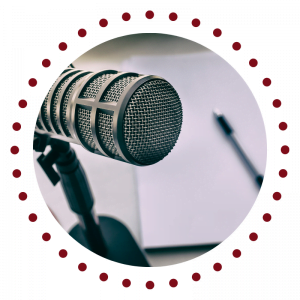
Want to be a Podcast Guest?
Check out our guest qualifications and submit our brief form to be considered.
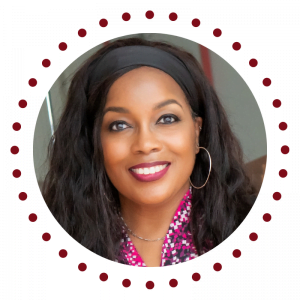
Want Karan to be Your Podcast Guest?
- Blended Workforces & the Gig Economy
- Critical Execution Tactics of High-performing Leaders
- Entrepreneurism & Leading Your Business
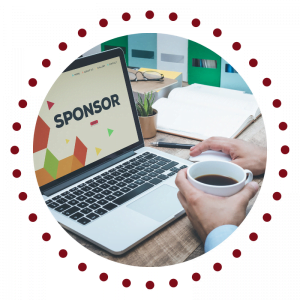
Want to be a Podcast Sponsor?
All sponsorships come with a featured spot on show notes pages.
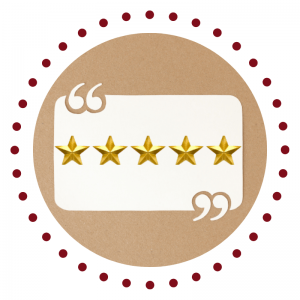
Like the Show? Please Leave a Review
If you like the show, it would mean the world to her if you left a quick review.
Your word is golden, so a HUGE thank you in advance!

#KeepInTouch
via our podcast alerts
Subscribe now to discover why thousands of monthly listeners who are passionate about doing their best work prioritize time each week to listen to the Blended Workforces @Work podcast.
#AboutSDL
#WhereToFindUs
MAILING
4480-H South Cobb Drive
PMB 219
Smyrna, GA 30080
PHYSICAL
2121 NewMarket Parkway
Ste. 108
Marietta, GA 30067
#ContactOptions
Customer Service Email:
service@shockinglydifferent.com
Call or Text:
770-384-1103
#Office Hours
MON-FRI
8:30 AM – 6:30 PM
Weekends By Appointment

